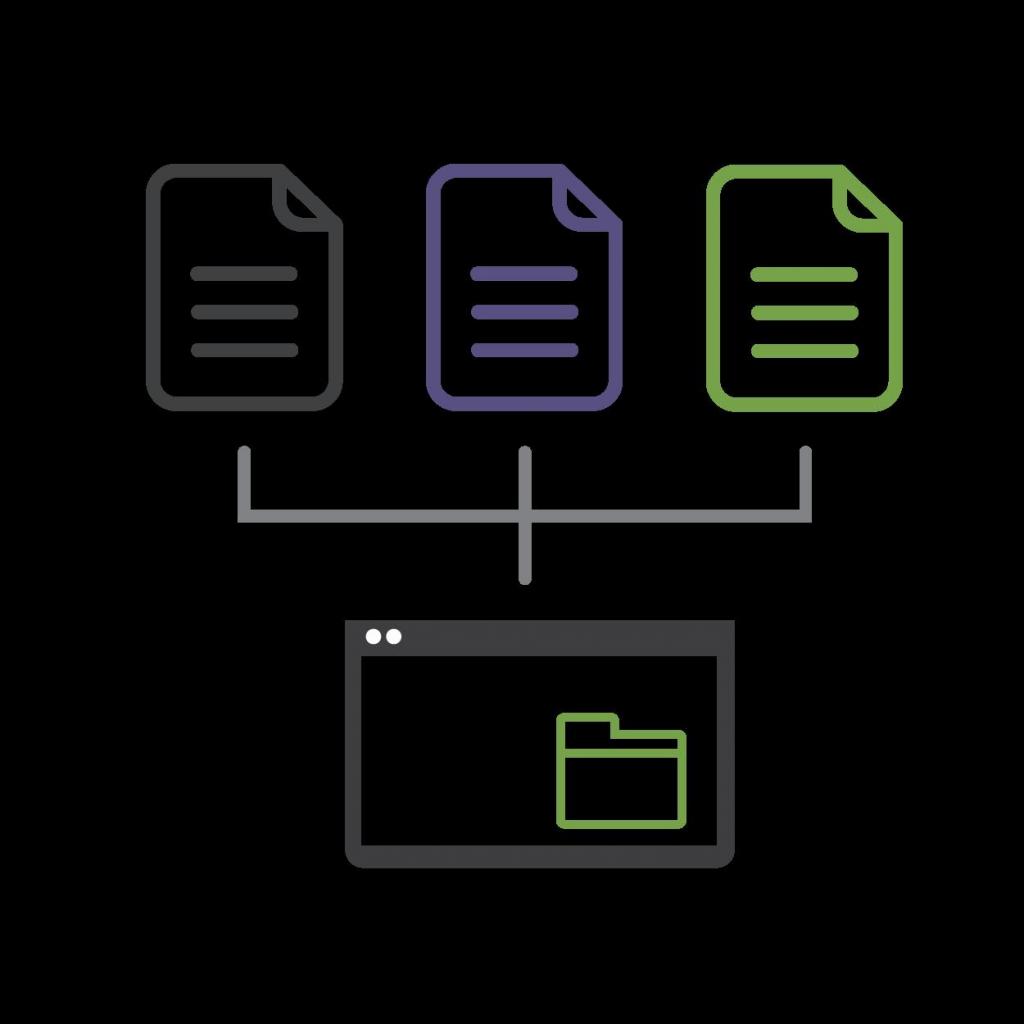Accounts payable of a modern enterprise is a very important part of its economic activity, since it contributes to the opportunity to postpone fulfillment of obligations for some time, thereby acquiring additional funds to finance and develop its activities.
The question “Overdue payables is how many months?” Is very relevant today. Overdue payables are part of the company's problems, especially in times of crisis. This concept refers to debt that has not been repaid during the period specified in the contract.
The situation of accounts payable arises when one company sells a product or service to another company. Relations arising in this case are regulated by a special contract; it necessarily prescribes the term for payment for a service or product. By signing this contract, the buyer agrees to the terms of such a contract, which means that he undertakes to pay the amount of installed funds exactly on the specified time. If this does not happen, then arrears arise.

Concept
The concept of "accounts payable" is considered as a debt of a legal entity to other companies, which the company is forced to repay. Accounts payable can be attributed to banking institutions for the amount of loans received from them, loans (short-term and long-term).
Kinds
The following types of accounts payable are:
- Unjustified. It includes arrears for deliveries in accordance with unpaid deliveries and arrears arising from non-payment of settlement documents on time. This type of debt arises when the company actually received the products from the supplier, but the settlement documentation for it has not yet been delivered to this organization or to a credit institution (bank).
- Other short circuit. This type of obligation includes claims for receipt, deposits of unclaimed amounts. Monetary obligations of this type are formed in a situation where the day of receipt of goods or, for example, services does not coincide with the actual day of payment.
The amount of debt obligations of the company are influenced by the following factors:
- total number of purchases;
- policy of repayment of this debt in a specific company
- terms of settlements with counterparties and suppliers, the degree of saturation of the market with this product.

Management issues
Accounts payable management issues are fundamental to modern business. Not only the success of the enterprise, but also its existence in principle depends on the effectiveness of such management.
The basic rules for managing accounts payable are as follows:
- Determination of the rational structure of KZ and regular analysis of the ratio of types of obligations.
- The ability to avoid delays in the KZ associated with the risk of suspension or termination of activity.
- Periodically calculate the turnover of receivables and payables and adjust the commercial terms of deferred payment with customers and suppliers.
- Carry out an inventory of receivables and payables, as well as timely take timely repayment measures.
The above rules for managing accounts payable are valid for any specific activity. But each organization has additional ways to make its debt effective.
If the company makes settlements with suppliers in foreign currency, then one of the elements of accounts payable management can be hedging (insurance) of currency risks. Under volatile exchange rates, hedging can significantly reduce the amount of KZ in rubles.
The essence of the hedging is to draw up an agreement with the bank, according to which the latter agrees to sell the currency on a fixed date at a fixed rate, and the company buys the currency on this date at a specified rate. KZ management in this case is strictly dependent on the payment schedule and provides a favorable exchange rate on the payment date.
Effective management of the receivables and payables of the enterprise is a guarantee of its provision with working capital sufficient for continuous operations. KZ management plays a leading role in this process, since it significantly reduces the risk of insolvency and bankruptcy of an enterprise.

How is accounts payable verified?
According to the rules for accounting for overdue payables, it is believed that an inventory should be carried out every quarter. However, not all companies do this, so it is important to take an inventory at least once a year. This is done before the annual accounting report, all inventory data must be recorded in a special act.
With a one-time annual inspection, there is a high probability of timely missed accounts payable.
The best option is considered to be an approach that allows not only to identify, but also to avoid the unintentional cancellation of the “lender”.

What is overdue payables?
As never before today the question is relevant: "Overdue payables - how many months?".
Debt is considered to be past due the next day after the due date specified in the contract. From this moment, the creditor may apply to the court in order to protect interests. This is done in order to recover the necessary amount of money from the debtor.
To appeal to the court, the creditor will need to attach all available evidence that was signed between the parties. The total amount required for payment must be indicated, as well as the due date.
Several points should be noted:
- In the presence of overdue accounts payable, the company has a bad reputation among the contractors, which will negatively affect the future contracts of the company.
- The issue of repayment of accounts payable on time is fundamental for many firms. The fact is that if the debt is not paid off within the period specified in the contract, the organization runs the risk of defaulting.
- Many accounting staff simply forget that you can also make a profit on past due debts. Typically, the manager and accountants are especially careful about what current accounts receivable the company has, but they forget about accounts payable.
Types of Delays
Any accounts payable in terms of time can be divided into only two types:
- current
- overdue.
Current debt means a debt obligation when the payment term has not yet arrived. It becomes expired when the funds have not been returned within the period specified in the contract.
Overdue accounts payable in accounting are divided into several types:
- to employees of the organization for wages;
- to contractors;
- in tax authorities;
- to the supplier;
- other types of debt obligations.

How to write off?
Writing off expired past due payables is an important task for the company. This is due to the fact that such operations always arouse keen interest of tax authorities during inspections. Therefore, to protect the organization from possible additional fees, it is important to clearly understand how, when, and with what documents it is necessary to write off the debt of previous years.
An overdue “creditor” is considered separately for each existing liability. In this case, the basis for writing off accounts payable is checking the debt, as well as an internal document confirming the reasons for the cancellation. Such a document can be drawn up by an authorized person from accounting and signed by the head of the company.
To understand how to write off overdue accounts payable, it should be noted that companies must conduct an annual inventory to prepare annual financial statements that meet the criteria of reality. However, the head has the right to establish additional grounds for its implementation, as well as indicate what exactly will be checked.
Therefore, as a priority event on the path of writing off short-term loans, it is necessary to take an inventory, it is best not for all obligations, but only for some of them (for example, for settlements with individual creditors).
In accordance with the results, inventory reporting is formed with creditors (form No. INV-17), which contains information about the size of the aggregate, and not just overdue debt. In the act, for each creditor, it is indicated, in particular, its name, accounting accounts on which one or another short-term account is currently recorded, information on reconciliation, mutual settlements with the creditor, and the number of “overdue” payables. The act is drawn up by the inventory commission in 2 copies.
In order to write off accounts payable for which the statute of limitations has expired, in addition to the act of checking the debt or inventory, a written justification for its existence must also be provided. This justification will be a financial statement on the write-off of accounts payable, drawn up in the context of synthetic accounts based on data from accounting registers, as well as other documents confirming the debt (for example, an act of approval of settlements with the creditor). From such a document you can find out when and for what reasons a specific payable is formed, what is its size, as well as its details.

How to keep accounting?
In accounting, overdue accounts payable shall be accounted for using the credit of account 91 as part of other income.
It should be noted that score 91 is active-passive. It provides information on the expenses incurred and the income earned by the company in areas of non-core activities.
Depending on the specific account on which the specific KZ was recorded, it will be written off using the following postings of overdue accounts payable Dt 60 (62, 66, 67, 70, etc.), Kt 91-1.
Debit Conditions
Accounts payable, for which the creditor has not yet claimed, after a specified period is recognized as past due, that is, it must be written off and included in the income of the company.
You can write off the “creditor” only after the limitation period (3 years) has expired. At the same time, it is extremely important to correctly determine when exactly the period will start from which date it is necessary to calculate.
Overdue payables - how many months? In Art. 200 of the Civil Code of the Russian Federation, a special procedure has been established for establishing the date from which the limitation period for obligations must be calculated.If the contractor undertakes to fulfill the obligation assigned to him within the established time limits, the limitation period for accounts payable shall be taken into account from the end of this period.
If the contract does not provide the contractor with a specific period and does not determine the date of fulfillment of the obligation, the limitation period shall be calculated from the day when the creditor provided the contractor with an obligation to fulfill his obligations.
If, according to the contract, from the date of receipt of such a requirement, the contractor is given a certain period for fulfilling the requirement, it should be taken into account from the end of this period.
Statute of limitations
Interruption means that the countdown of the previous restriction period is completed, and the account of the new one must be executed from the moment of interruption.
At the same time, the cumulative period of restriction of actions is a limit of 10 years. This means that, taking into account all the breaks, it cannot last more than the specified period.

Conclusion
The article presented the most detailed answer to the question “Overdue payables - how many months?”. It is important to consider the nuances associated with the correct determination of the beginning of the restriction period. And also do not forget that if a period of time was interrupted, then the calculation of a new one should begin anew from the moment of the break. In order to write off accounts payable, it is necessary to follow a certain procedure and draw up a number of documents (inventory act, accounting, management order).

At the same time, even if the organization could not take an inventory of overdue payables, it is still advisable to include it in taxable income in order to avoid disputes with auditors. And this should be done on the last day of the period in which the statute of limitations for the KZ expires.
